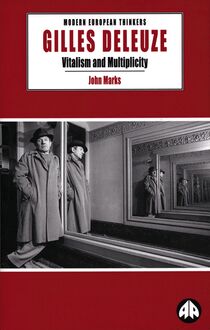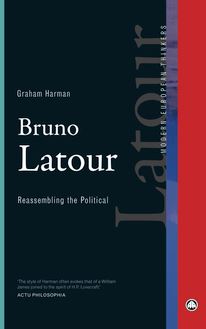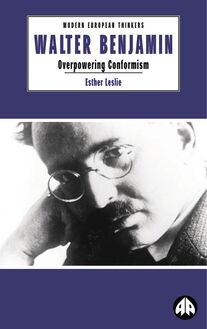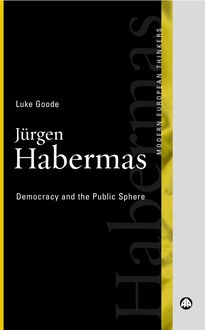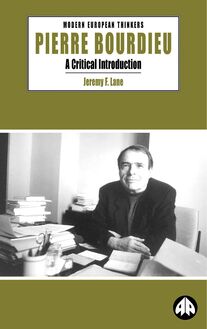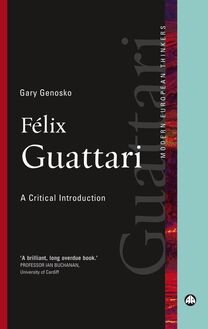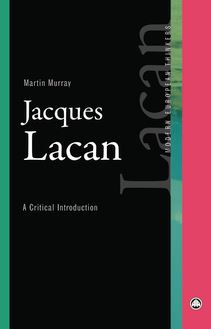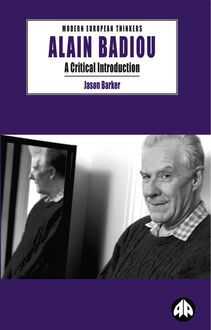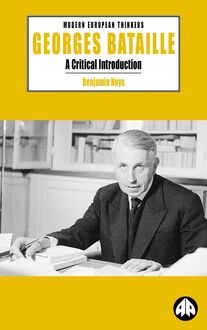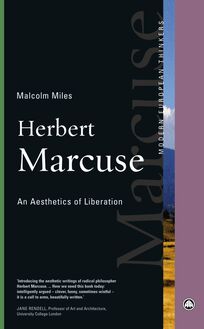-
 Univers
Univers
-
 Ebooks
Ebooks
-
 Livres audio
Livres audio
-
 Presse
Presse
-
 Podcasts
Podcasts
-
 BD
BD
-
 Documents
Documents
-
- Cours
- Révisions
- Ressources pédagogiques
- Sciences de l’éducation
- Manuels scolaires
- Langues
- Travaux de classe
- Annales de BEP
- Etudes supérieures
- Maternelle et primaire
- Fiches de lecture
- Orientation scolaire
- Méthodologie
- Corrigés de devoir
- Annales d’examens et concours
- Annales du bac
- Annales du brevet
- Rapports de stage
La lecture à portée de main
Vous pourrez modifier la taille du texte de cet ouvrage
Découvre YouScribe en t'inscrivant gratuitement
Je m'inscrisDécouvre YouScribe en t'inscrivant gratuitement
Je m'inscrisEn savoir plus
Vous pourrez modifier la taille du texte de cet ouvrage
En savoir plus

Description
Along with Latour's most important articles on political themes, the book chooses three works as exemplary of the distinct periods in Latour's thinking: The Pasteurization of France, Politics of Nature, and the recently published An Inquiry Into Modes of Existence, as his conception of politics evolves from a global power struggle between individuals, to the fabrication of fragile parliamentary networks, to just one mode of existence among many others.
Abbreviations for Latour's Works Cited in the Book
A Note on the Life and Thought of Bruno Latour
Introduction: Truth Politics and Power Politics
1. In Search of a Latourian Political Philosophy
2. Early Latour: A Hannibal of Actants
3. Middle Latour: The Parliament of Things
4. Late Latour: Politics as a Mode
5. 'Usefully Pilloried': Latour’s Left Flank
6. 'An Interesting Reactionary': Latour’s Right Flank
7. 'A Copernican Revolution': Lippmann, Dewey and Object-Oriented Politics
8. Concluding Remarks
Notes
Bibliography
Index
Sujets
Informations
| Publié par | Pluto Press |
| Date de parution | 20 octobre 2014 |
| Nombre de lectures | 0 |
| EAN13 | 9781783711987 |
| Langue | English |
Informations légales : prix de location à la page 0,1850€. Cette information est donnée uniquement à titre indicatif conformément à la législation en vigueur.
Extrait
Bruno Latour
Modern European Thinkers
Series Editors: Anne Beech and David Castle
Over the past few decades, Anglo-American social science and humanities have experienced an unprecedented interrogation, revision and strengthening of their methodologies and theoretical underpinnings through the influence of highly innovative scholarship from continental Europe. In the fields of philosophy, poststructuralism, psychoanalysis, critical theory and beyond, the works of a succession of pioneering writers have had revolutionary effects on Anglo-American academia. However, much of this work is extremely challenging, and some is hard or impossible to obtain in English translation. This series provides clear and concise introductions to the ideas and work of key European thinkers.
As well as being comprehensive, accessible introductory texts, the titles in the ‘Modern European Thinkers’ series retain Pluto’s characteristic radical political slant, and critically evaluate leading theorists in terms of their contribution to genuinely radical and progressive intellectual endeavour. And while the series does explore the leading lights, it also looks beyond the big names that have dominated theoretical debates to highlight the contribution of extremely important but less well-known figures.
Also available:
Hannah Arendt
Finn Bowring
Alain Badiou
Jason Barker
Georges Bataille
Benjamin Noys
Jean Baudrillard
Mike Gane
Walter Benjamin
Esther Leslie
Pierre Bourdieu
Jeremy F. Lane
Gilles Deleuze
John Marks
André Gorz
Conrad Lodziak and Jeremy Tatman
Félix Guattari
Gary Genosko
Jürgen Habermas
Luke Goode
Herbert Marcuse
Malcolm Miles
Guy Hocquenghem
Bill Marshall
Slavoj Žižek
Ian Parker
Bruno Latour
Reassembling the Political
Graham Harman
Pluto Press
www.plutobooks.com
First published 2014 by Pluto Press
345 Archway Road, London N6 5AA
www.plutobooks.com
Copyright © Graham Harman 2014
The right of Graham Harman to be identified as the author of this work has been asserted by him in accordance with the Copyright, Designs and Patents Act 1988.
British Library Cataloguing in Publication Data
A catalogue record for this book is available from the British Library
ISBN 978 0 7453 3400 4 Hardback
ISBN 978 0 7453 3399 1 Paperback
ISBN 978 1 7837 1197 0 PDF eBook
ISBN 978 1 7837 1199 4 Kindle eBook
ISBN 978 1 7837 1198 7 EPUB eBook
Library of Congress Cataloging in Publication Data applied for
This book is printed on paper suitable for recycling and made from fully managed and sustained forest sources. Logging, pulping and manufacturing processes are expected to conform to the environmental standards of the country of origin.
10 9 8 7 6 5 4 3 2 1
Typeset by Stanford DTP Services, Northampton, England
Text design by Melanie Patrick
Simultaneously printed digitally by CPI Antony Rowe, Chippenham, UK and Edwards Bros in the United States of America
Contents
Abbreviations for Latour’s Works Cited in the Book
A Note on the Life and Thought of Bruno Latour
Introduction: Truth Politics and Power Politics
1
In Search of a Latourian Political Philosophy
2
Early Latour: A Hannibal of Actants
3
Middle Latour: The Parliament of Things
4
Late Latour: Politics as a Mode
5
“Usefully Pilloried”: Latour’s Left Flank
6
“An Interesting Reactionary”: Latour’s Right Flank
7
“A Copernican Revolution”: Lippmann, Dewey, and Object-Oriented Politics
8
Concluding Remarks
Notes
Bibliography
Index
Abbreviations for Latour’s Works Cited in the Book
AIME
An Inquiry into Modes of Existence (2013)
BAB
“Redefining the social link” (1987)
BEC
“Whose Cosmos, Which Cosmopolitics?” (2004)
COP
“Coming out as a philosopher” (2010)
DBD
“Let the dead (revolutionaries) bury the dead” (2014)
EWC
“The Enlightenment Without the Critique” (1987)
GIFF
“Facing Gaia” (the Gifford Lectures) (2013)
INT
“On Interobjectivity” (1996)
NBM
We Have Never Been Modern (1993)
PA
“The Powers of Association” (1986)
PF
The Pasteurization of France (1988)
PFM
“How to Write ‘ The Prince ’ for Machines as Well as for Machinations” (1988)
PH
Pandora’s Hope (1999)
PIC
Paris: Invisible City (1998)
PN
Politics of Nature (2004)
PRG
“Pragmatogonies” (1994)
PW
The Prince and the Wolf (2011)
RAM
“On the Partial Existence of Existing and Non-Existing Objects” (2011)
RD
“From Realpolitik to Dingpolitik” (2005)
RGDV
“Turning Around Politics” (2007)
SA
Science in Action (1987)
TPL
“What if we Talked Politics a Little?” (2003)
TSD
“Technology Is Society Made Durable” (1991)
UNS
“Unscrewing the big Leviathan” (1981)
A Note on the Life and Thought of Bruno Latour
Given that some readers of this book might be unfamiliar with its central character, a brief introduction is in order. Bruno Latour was born on June 22, 1947 in the charming town of Beaune, roughly 50 kilometers south of Dijon in the Burgundy region of France. He is the youngest child of a large family belonging to the prominent Louis Latour wine dynasty (not to be confused with Château Latour wines from the vicinity of Bordeaux). Latour knew early that his vocation was intellectual life rather than wine production, and he chose to study philosophy in the face of a certain degree of family resistance. Perhaps the first sign of future world prominence came in the early 1970s, when he achieved first place in the whole of France in the Agrégation examination in philosophy. Given this brilliant result, an outside observer might have expected the young Latour to opt for a standard career as an academic philosopher. Instead, the always unorthodox tendencies of his mind prevailed, leading him on a path that to this day remains hard to describe in terms of the known university disciplines. Latour’s national service work in Africa sparked an interest in anthropology, leading to his idea of an anthropology of the sciences that would describe Western science in the same terms as those used by anthropologists to describe the isolated and “primitive” peoples of the world. This project led him to the Jonas Salk Institute in San Diego, where his observations of scientists at work led to the publication of his first book Laboratory Life , co-authored with the British sociologist Steve Woolgar. Seemingly on the verge of a sparkling career, he nonetheless found himself blackballed by one prestigious institution in the United States, just as he would be shunned decades later by another at home in France. Latour landed instead at the Center for the Sociology of Innovation at the School of Mines in Paris, where he found a sympathetic colleague in Michel Callon; together, the two would do crucial collaborative work. Latour did not leave the School of Mines until more than twenty years later, by which time he was an international celebrity and the author of such influential books as The Pasteurization of France, Science in Action , We Have Never Been Modern , and Pandora’s Hope . In 2006 he moved to the ambitious Paris Institute of Political Studies, better known by its affectionate nickname: Sciences Po. During this period Latour has further solidified his reputation as one of the world’s most prominent figures in the human sciences, having received such prestigious awards as the 2008 Siegfried Unseld Prize in Germany and the 2013 Holberg Prize in Norway. Latour lives in the Latin Quarter of Paris with his wife Chantal, with whom he has two adult children: a daughter named Chloë and a son named Robinson.
Latour is one of the founders of a method in the social sciences known as actor-network theory (ANT), which rejects sweeping categories of analysis such as “society” or “capitalism” in favor of a laser-like focus on the specific actors or actants at work in any situation. As the word suggests, actors are defined by their actions and nothing else. This has two immediate consequences. The first is that Latour empties the world of the traditional objects or essences that one might think lie hidden behind the overt actions they perform. Stated differently, Latour’s is a world of verbs rather than nouns, relations rather than substances. Perhaps the chief philosophical parallels here are the American pragmatist thinker William James, 1 who joined C.S. Peirce in proclaiming that a thing without consequences is simply not a thing, and the English metaphysician Alfred North Whitehead, 2 who held that entities are constituted by their relations (or “prehensions”), and that any notion of an underlying substance hidden behind the actions or relations of an entity is a mere “vacuous actuality.”
The second consequence of Latour’s version of actor-network theory is the breakdown of the typical modern distinction between humans and the world, or culture and nature. The collapse of this difference is pivotal for Latour, as indicated by the title of his brilliant 1991 treatise We Have Never Been Modern . Rather than starting with an arbitrary taxonomy that declares one type of entity to be “natural” (existing independently and working with clockwork mechanical precision) and another to be “cultural” (resulting from the projection of relativistic human meanings and values onto cold, dead physical matter), we must start by considering all entities in exactly the same way. Namely, whatever acts in some way is real: whether it be neutrons, trees, mountains, armies, politicians, unicorns, stick figures, or flying saucers. Unicorns cannot be excluded from the picture, since they obviously have an effect on the structure of fairy tales and the stuffed animal collections of children. We cannot say that neutrons are more real than unicorns, only that they are stronger than unicorns. After all, neutrons simply have more and better animate and inanimate allies testifying to their existence than do unicorns. Truth is primarily a matter of strength in assembling allies, not of immaculate point-for-point correspondence with some external
-
 Univers
Univers
-
 Ebooks
Ebooks
-
 Livres audio
Livres audio
-
 Presse
Presse
-
 Podcasts
Podcasts
-
 BD
BD
-
 Documents
Documents
-
Jeunesse
-
Littérature
-
Ressources professionnelles
-
Santé et bien-être
-
Savoirs
-
Education
-
Loisirs et hobbies
-
Art, musique et cinéma
-
Actualité et débat de société
-
Jeunesse
-
Littérature
-
Ressources professionnelles
-
Santé et bien-être
-
Savoirs
-
Education
-
Loisirs et hobbies
-
Art, musique et cinéma
-
Actualité et débat de société
-
Actualités
-
Lifestyle
-
Presse jeunesse
-
Presse professionnelle
-
Pratique
-
Presse sportive
-
Presse internationale
-
Culture & Médias
-
Action et Aventures
-
Science-fiction et Fantasy
-
Société
-
Jeunesse
-
Littérature
-
Ressources professionnelles
-
Santé et bien-être
-
Savoirs
-
Education
-
Loisirs et hobbies
-
Art, musique et cinéma
-
Actualité et débat de société
- Cours
- Révisions
- Ressources pédagogiques
- Sciences de l’éducation
- Manuels scolaires
- Langues
- Travaux de classe
- Annales de BEP
- Etudes supérieures
- Maternelle et primaire
- Fiches de lecture
- Orientation scolaire
- Méthodologie
- Corrigés de devoir
- Annales d’examens et concours
- Annales du bac
- Annales du brevet
- Rapports de stage
